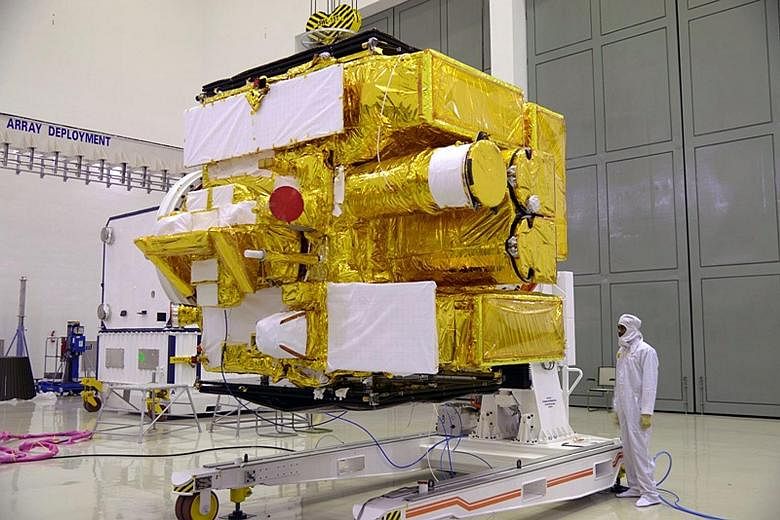India deployed its own, smaller version of the Hubble telescope yesterday to study black holes and distant celestial objects, notching another milestone in an ambitious space programme.
Scientists of the Indian Space Research Organisation (Isro) cheered as Astrosat - the country's first space research observatory - was put into orbit, 22 minutes after the Polar Satellite Launch Vehicle took off from India.
Six other satellites, including - for the first time - four American ones, were also deployed. Prime Minister Narendra Modi - who met US President Barack Obama for talks while in the United States for the UN General Assembly - called it "one more grand accomplishment for Indian science".
Describing the 1,513kg Astrosat as a "gift" to astronomy, space centre director P. Kunhikrishnan said Isro would send six satellites from Singapore next. He did not specify when.
"India has taken a giant technological leap, and joined hands with the world to see that mysteries of the universe are unravelled," he said.
"Let us all hope that the scientific community in India and all over the world will benefit..."
India's low-budget space programme grabbed global attention in 2013, with the successful launch of its Mars Orbiter Mission on its first attempt. The orbiter, which has completed a year in orbit and has been sending data, cost US$74 million (S$105.6 million) - about a tenth of the US' Mars mission.
Though India's space programme has seen glitches, such as delays in a launch vehicle that can take heavier payloads, it has still emerged as a major player, sending 51 satellites for other countries into space. Singapore's first locally built satellite was launched by India in 2011.
The launch of Astrosat, on a five-year mission, excited India's scientific community. "This is particularly important for neutron stars (the densest and smallest stars in the universe) and black holes," said Professor Dipankar Bhattacharya at the Inter-University Centre for Astronomy and Astrophysics, who was involved in the project.
"It allows us to probe processes going on close to the surface... It is not trying to do anything Hubble is doing. It is not a large aperture telescope," he said.
According to Isro, Astrosat would study the universe in optical, ultraviolet low- and high-energy X-ray wavelengths.
Former Isro chairman K. Kasturirangan called it "one of the most challenging efforts".

